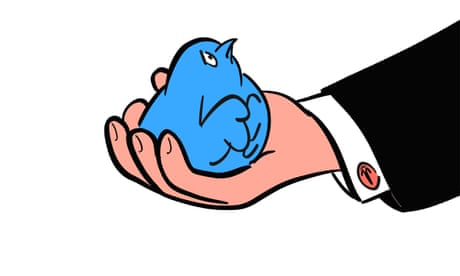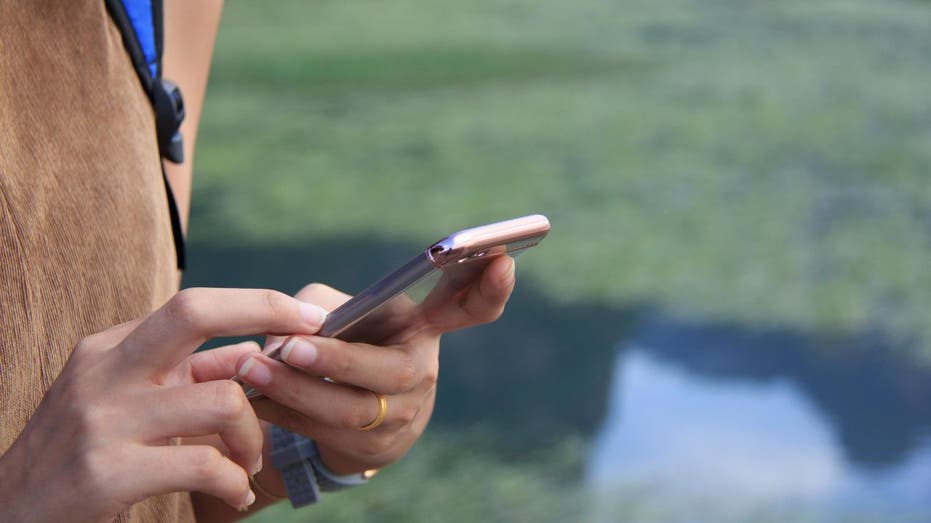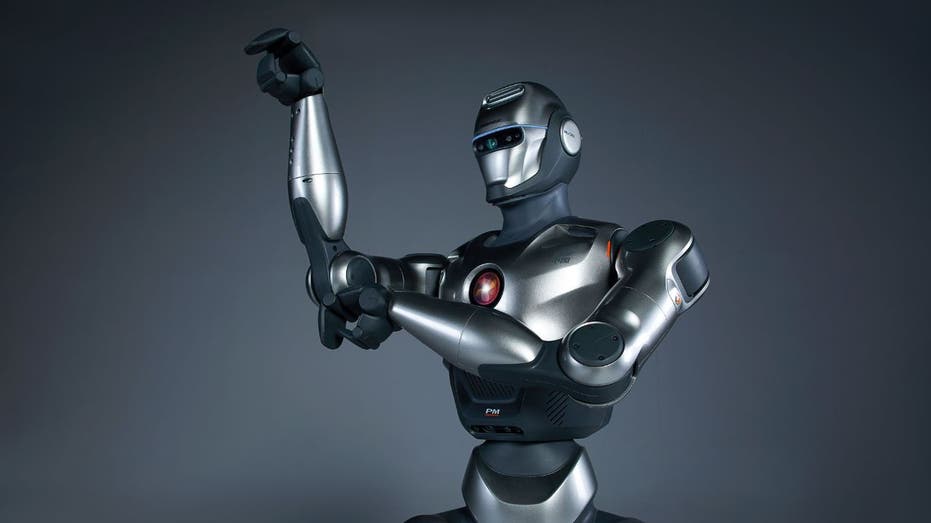- by foxnews
- 10 Mar 2025
‘He is poised to open the floodgates’: can Twitter survive Elon Musk - or even thrive?
‘He is poised to open the floodgates’: can Twitter survive Elon Musk - or even thrive?
- by theguardian
- 04 Nov 2022
- in technology

Twitter isn't a good place to be right now. That's nothing new, but the day-to-day awfulness has been ramped up by Elon Musk's chaotic acquisition. In the week since he marched through the company's San Francisco office holding a basin - so that he could tweet "let that sink in" - and dubbed himself first "chief twit" and then "Twitter complaint hotline operator" (his actual title, according to internal systems, is boring old "chief executive officer"), the world's richest man has done the corporate-takeover equivalent of flipping the table halfway through a game of chess.
Externally, the changes are slim, but significant. One of his first acts was to order a change in the site's homepage. If you visit Twitter.com without being logged into an account, you will no longer be sent to a log-in page; instead, you'll be taken to the Explore tab, the site's algorithmically curated selection of the best tweets and most popular trends. It's a change of focus, in other words, from encouraging users to sign up or log in, to embracing visitors who just want to see what's happening and then bail.
That change of focus isn't unprecedented. Twitter has flipped and flopped on the question multiple times in the past, sometimes arguing that its goal as a company is simply to maximise the number of people reading tweets, other times arguing that it should be maximising account-holders, and other times focusing on "monetisable" users - those who see adverts. No, the point of the change isn't what happened, but when it happened: immediately.
No focus groups, no A/B tests, no memos passed back and forth between senior executives arguing the pros and cons of each option. Musk commands, and change occurs. The message, for those inside Twitter and out, was clear: meet the new boss, not at all the same as the old boss.
In the days since, Musk has torn through the social network's headquarters like a hurricane. Backed up by a brains trust of close friends, including the venture capitalists Jason Calacanis and Sriram Krishnan, PayPal co-founder David Sacks, and Alex Spiro, his personal lawyer, as well as a handpicked cohort of Tesla engineers, he has set about reshaping the company.
Alongside the symbolic change to the homepage came the actual changes to the executive team. Musk fired Twitter's chief executive and chief finance officer, as well as the head of legal and policy, Vijaya Gadde - the most powerful woman at Twitter and the person most identified with the decision to ban Donald Trump from the site. Despite early reports suggesting the executives were in line for multimillion-dollar golden parachutes, Musk appears instead to have decided that he hasn't seen enough of courtrooms in the past six months, firing them "for cause" - that is, alleging gross incompetence - and denying them their payouts.
The payouts will almost certainly arrive eventually, after Musk plays a mini version of the same courtroom drama that led to him being forced to buy the company in the first place. According to a Financial Times report, his argument is that were it not for his bid, the value of the company's stock would have collapsed. Others note that the fact that the executives fought so hard to force Musk to complete the purchase suggests that they did their job very well indeed, securing a multibillion payout for shareholders that would have evaporated if they had let him walk away.
But again, the message is sent: no one is safe. And the rest of the office knows it. On the first day, a missive went out commanding coders (software engineers) to print out their last 30 days of work and bring it to a code review, where one of the Tesla engineers would assess their skill. Shortly after, a second missive went out, telling people to shred those printouts. But the code reviews went ahead, albeit digitally, and on Monday, the layoffs of the rank and file began.
In practice, the code reviews appear to be little more than a blunt ranking of quantity, like assessing a construction crew by how many bricks they have laid. They can't be much more complex than that, because Musk's goal is to see off a quarter of the company's staff - and to do it quickly. Although the chief twit has denied that he was explicitly trying to get rid of staff before an expensive round of cash bonuses became due on 1 November, the time pressure is there nonetheless. Even those who pass the code reviews may find their jobs under threat: one project, to overhaul the company's Twitter Blue subscription service and bring in a monthly fee for verification, was instituted with a deadline of just one week. Whether the project is actually urgent, or simply a useful way to encourage those unwilling to work all hours and weekends for a capricious new manager to quit voluntarily, is unclear. At least Twitter staff can take some comfort in the fact that Musk's reported intention to lay off 75% of the workforce has yet to come to pass.
If Musk sounds like the boss from hell, well, you wouldn't be the first to think so, and Twitter staff aren't the first to find out. In internal Tesla emails, leaked last year, he laid out his management style plainly for underlings: "If an email is sent from me with explicit directions, there are only three actions allowed by managers. 1) Email me back to explain why what I said was incorrect. Sometimes, I'm just plain wrong! 2) Request further clarification if what I said was ambiguous. 3) Execute the directions.
"If none of the above are done, that manager will be asked to resign immediately."
In spring, he again threatened immediate job losses, as part of a return-to-the-office mandate at Tesla. Employees were expected to be in the office for a minimum of 40 hours a week, he said, "or depart Tesla". Showing he has a soft spot, Musk did allow remote work to continue - as optional extra hours on top of the 40-hour minimum. "If you don't show up, we will assume you have resigned."
Over the summer, employees at one of his other companies had enough. "SpaceX must swiftly and explicitly separate itself from Elon's personal brand," they wrote, in a letter to senior executives that called Musk a "distraction and embarrassment". Instead, the letter-writers were fired.
But Musk didn't buy Twitter to cut jobs, nor to simply expand his fiefdom, which already covers land (Tesla), space (SpaceX) and the underworld (the Boring Company), into cyberspace. In fact, he was clear about his motivations as far back as April, when he first put in a bid to own the company. "Free speech is the bedrock of a functioning democracy," he said, "and Twitter is the digital town square where matters vital to the future of humanity are debated."
Not everyone thinks Musk is the right person to oversee that. "Many studies have shown that social media is a leading cause of misinformation and disinformation, especially when it comes to spreading harmful election lies that chip away at trust in our democratic institutions," says Lindsey Melki, of the nonpartisan anti-corruption group Accountable.US. "To the previous Twitter leadership's credit, they tried to contain the problem to a certain degree. But now Musk is poised to open the floodgates of election disinformation, making it truly the wild west of Big Lie propaganda and a safe harbour for would-be insurrectionists."
Even Musk appeared to have second thoughts. Within days of marching into Twitter HQ, his earlier bluster about stripping out content moderation, reinstating banned accounts and emphasising "free speech" was muted. Updating his bio from "chief twit" to "Twitter complaint hotline operator" was an acknowledgment, however understated, that claiming sole power to decide the outcome of moderation decisions on a platform of more than 200 million people isn't fun.
On the first weekend after buying the company, he announced that he would be setting up a "content moderation council with widely diverse viewpoints", and that no major decisions would be made until after it had met. Like Mark Zuckerberg before him, who set up Facebook's "oversight board" to formalise decision-making around content moderation - and to outsource blame for mistakes - Musk is angling for the power but not the responsibility.
Unlike Zuckerberg, Musk has strong commercial reasons to want to avoid being held responsible for the decisions his company makes. Twitter may be his current love, but Tesla is the source of his wealth, and the car company sells vehicles around the world - including in China, where Twitter is banned and where the government was on Tuesday revealed to be running 2,000 accounts on the social network aimed at influencing the US midterm elections. Promoting free speech in the US is simply defending the constitution; promoting it in China is a subversive act.
So why is he doing it? Because Musk is, at heart, a poster. He cannot stop posting on the internet. He believes, quite sincerely, that Twitter is of societal importance, and that without his strong hand guiding it, it will squander its influence, and he will be left with nowhere to post.
The thing is, it's not clear he's wrong.
The problems at Twitter predate Musk. It is hard to remember now, but in the early days of the 2010s, Twitter and Facebook were spoken of in one breath. As a social network, it wasn't the largest, but it wasn't the smallest either - and unlike Facebook, it had cracked mobile from day one, with an offering that was perfectly suited to the growing penetration of smartphones around the world.
It isn't hard to imagine a parallel world where things had gone differently. Perhaps if Facebook's acquisition of Instagram had fallen through, and Twitter had embraced the more personal side of social media left open by that absence, and won round youthful users as a result, the two companies would continue to be neck and neck.
Instead, Facebook pulled away, and Twitter was left behind. For all its impact on media and politics, the site is a comparative minnow. It doesn't appear in Ofcom's ranking of the 10 biggest online organisations - even after aggregating all of Google and Facebook's various businesses, it lags behind eBay, PayPal and the NHS. Twitter remains influential, reaching a little under two-thirds of all British adults in September 2021, but with far fewer regular users - just 11.4 million visited the site on an average day, compared with 34.3 million who visited Facebook.
The vast majority of those visitors are passive users. Twitter "power users", dubbed "heavy tweeters" in the platform's internal metrics, generate 90% of all tweets and half of global revenue, despite making up less than 10% of account holders, according to a recent Reuters report. It doesn't take much to make a heavy user: you just need to log in to Twitter "six or seven days a week" and tweet "about three to four times a week". But an internal document seen by Reuters concluded that those users are in "absolute decline". The document was titled: "Where did the tweeters go?"
Some of the company's headline metrics are healthier than that gloomy document suggests. Since 2019, it has focused on "monetisable daily active users" - those it can show adverts to - and they have risen steadily, from 134m accounts in the first quarter of that year to 238m this June, the last figures reported. But those figures didn't filter through to the bottom line. The company has shown a net profit in only two years: 2018 and 2019.
Twitter's chief revenue source has always been advertising, but it has struggled to offer much to advertisers. Sometimes it presents itself as a Facebook in miniature, with detail-rich targeting options for advertisers to personalise against; at other times, it leans on its real-time nature, promoting the ability for advertisers to react rapidly to events. But it sits on the wrong side of an online advertising duopoly, where Google and Facebook are the defaults and any smaller platform has to justify its existence.
The problems at Twitter were both exacerbated and masked by its most prominent user: Donald Trump. For four years, his presence defined the site, with the cadence of a day often set by his first posts, angrily commenting on whatever had happened on cable news. Every US political reporter had to be on Twitter to understand their president; every US journalist had to be there to understand their newsrooms; every US politician had to be there to understand their opponents.
Twitter's user numbers swelled a bit during the Trump years, but its cultural importance grew far more, even in arenas seemingly far removed from the world of politics. Know Your Meme, a website that tracks the rise and fall of online culture, recently published a look at "where memes come from", tracking, platform by platform, the progress of internet culture from 2010, when YouTube and 4chan dominated, through to 2022, when TikTok contributes almost 30% of all new memes in the site's database. Some stories in the analysis are clear: the slow decline of 4chan and YouTube, the rapid growth of TikTok, the remarkably low impact of Facebook and Instagram on internet culture. But one that stands out is the peak, and then decline, of Twitter during and after the Trump years. In 2018, 40% of everything added to the site's database came from Twitter: it really was, for a certain vision of the internet, the site where things happened.
The impact of the Trump years wasn't something that Twitter did - it was something done to Twitter. Its co-founder Jack Dorsey had returned to the site just one year earlier, resuming his duties as chief executive after a seven-year gap. But Dorsey couldn't be convinced to give up his role at Square, the payments company he had founded in the interim, and so Twitter entered the most important four years in its history with a literal part-time boss.
Coasting on the wave of attention from Trump enabled Twitter to ignore its vast and growing problems. Some were directly tied to the president, and Twitter's commercial imperative to keep him and his fans active on the site. "I believe that Twitter relished in the knowledge that they were also the favourite and most used service of the former president and enjoyed having that sort of power within the social media ecosystem," one whistleblower from inside the company told the congressional committee investigating the 6 January attack on the US Capitol. "If former president Donald Trump were any other user on Twitter, he would have been permanently suspended a very long time ago."
Less than a year after Trump left office, Dorsey left Twitter, ousted by activist shareholders who felt that the company was underperforming in part because of its stagnation under a founder chief executive. His replacement, Parag Agrawal, had been in the post for less than six months when another activist shareholder, Musk, arrived and took a much less conventional approach to the same problem.
"Twitter has perennially had numerous problems," says Carl Tobias, the Williams chair in law at the University of Richmond, "that the Musk acquisition saga significantly clarified, publicised and exacerbated. There seemed to be a lack of leadership at the top, and an inability to earn significant profits and grow like the other major competitors.
"What remains unclear now and in the future is whether Musk will be able to operate the company any better, especially given his many other business commitments, namely Tesla and Space X, and his 'first amendment absolutist' perspective, whatever that means. One major concern could be whether Twitter will become a platform that ameliorates or worsens the rampant division, partisanship and lying that pervade political discourse in the US and the world. The tasks are many and complex, but Musk's abilities should not be underestimated, as he has shown before."
Musk's takeover relies on the same sense of preternatural self-confidence that underlies his other successes. Tesla built an electric car when the conventional wisdom in the industry was that it was a niche product for eco-nuts, and it sells almost 1m a year, all at the luxury end of the market. SpaceX built reusable rockets, and almost single-handedly lowered the cost of getting things in to orbit, sparking a spaceflight renaissance that lets Musk credibly commit to sending a rocket - if not people - to Mars.
In writing off Musk's Twitter takeover, it's hard not to worry that you may be making the same mistake as those naysayers. Sure, he seems in over his head, he has fired everyone who understands the site he's trying to run, he's losing the trust of major advertisers and bartering with Stephen King over a fair price for a verified tick. But he's also the last, desperate roll of the dice for a site that has power and influence, but no revenue or vision.
As with Tesla, and SpaceX - and Neuralink, and the Boring Company, and his many other projects that hover between a joke and business - Musk's central thesis for Twitter is that there's an opportunity if you bet the farm on the conventional wisdom being wrong. Every other business in the social media sector is substantially funded by advertising, so what if Twitter tried to focus on subscription revenue instead? Every other social media company jealously guards its curation algorithm, wielding the power to promote and bury content like a weapon, so what if Twitter let users pick and choose their own curation algorithm instead?
On Tuesday morning San Francisco time, the self-styled Twitter complaint hotline operator announced the first major change to Twitter since taking over: a new $8 a month fee for Twitter Blue, tying in the company's "blue tick" verification system to the pre-existing roster of benefits for subscribers. Like everything else Musk does, it's divisive. Is it a canny way to encourage more people to subscribe to the service, and reduce the influence of advertisers over the public square? Or is it a simple attempt to monetise a crucial safety feature, born out of a misguided belief that the 400,000 verified users will pay whatever it takes to preserve their apparent vaunted status?
Alongside his tweets revealing the change, Musk rallied his defenders, making the case that verification for all is a leveller, an equaliser. "Power to the people!" he said. What if he actually believes it?
- by foxnews
- descember 09, 2016
Ancient structure used for cult 'rituals' discovered by archaeologists
A Neolithic Timber Circle was discovered by archeologists in Denmark resembling the historical landmark Stonehenge in the U.K. It is open to be viewed by the public.
read more





